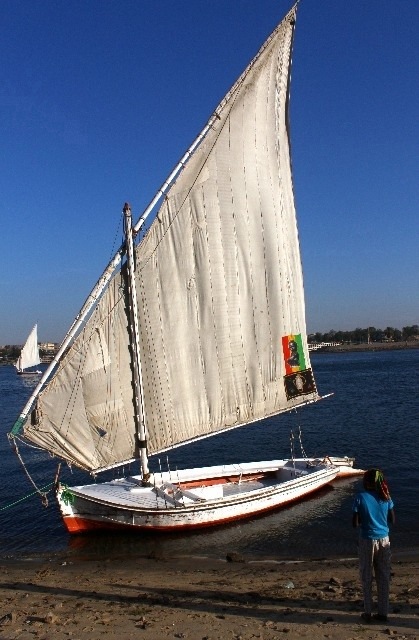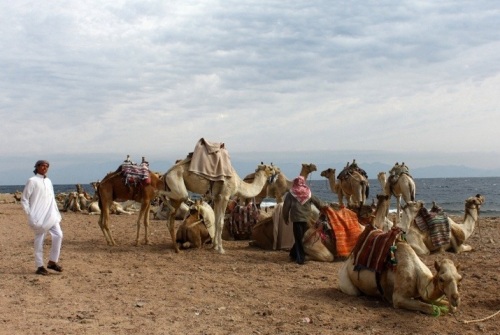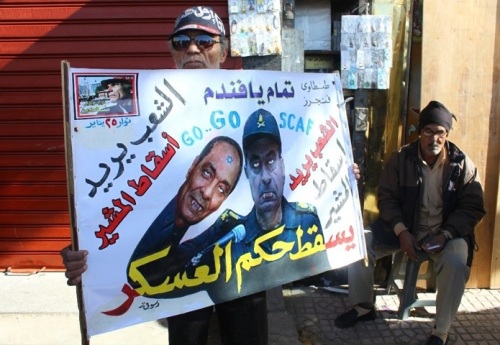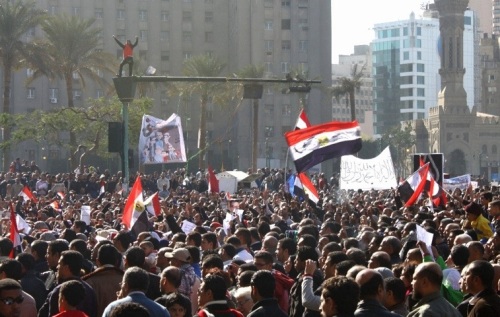
The Old Gourna Village is built on top of ancient tombs. The village has been evicted in 2009, today it is supposedly off limit to residents and tourists, but one could slip past the guard and get a closer look.
“Villagers said my father was mad, even our family thought the same, when he decided to restore the house. Why save a crumbling house? Why not just pull it down and build a new one?” says 28-year-old Sara as she gives my sister and I a tour of her mud-brick home in New Gourna Village.
The house was a legacy of Hassan Fathy (1900-1989), a renowned Egyptian architect dubbed the Father of Architecture for the Poor. The New Gourna Village was an experiment project built between 1946 and 1952, it was meant to relocate a community living on top of ancient Egyptian Pharaonic tombs to reduce damages to ancient treasures.
For nearly two centuries, the residents of Old Gourna Village literally living off the dead. They are landless peasants sitting on a gold mine of archaeological treasures, their ancestors mined the tombs, illegally excavating and trading ancient artefacts, or melting ancient jewellery to sell them for the current price of gold; but mostly, they are peasants in poverty, as they channelled their loot to antique dealers for a fraction of the real value.
As time passed, laws and enforcement tightened, meanwhile ancient treasures diminished, some residents ventured into forgeries of artifacts, while some turned to tourism, selling souvenirs that are replicas of ancient artefacts, or offering tour of their homes leading straight to ancient tombs.
In the 1940s, Egypt’s Department of Antiquity commissioned Hassan Fathy to design a pilot housing project to entice some 7,000 residents to leave Old Gourna. Sara’s grandfather was one of the first villagers to embrace the experiment, when others resisted the relocation plan (which failed back then, but forced demolition came in 2009, Old Gourna is today truly a ghost town, leaving the dead to rest in peace).
In 1947, Sara’s grandfather was compensated under the relocation scheme with a spacious adobe custom-made by Hassan Fathy, who engaged the villagers to learn of each household size, each family’s functional needs, lifestyle, working space, and community interaction pattern prior to design and build. (more…)













